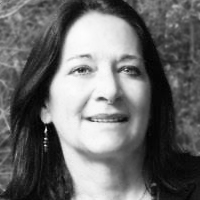What is Yoga?
Yoga is an ancient Indian science of health which dates back more than 5000 years. The word yoga comes from the Sanskrit term jouge which means to unite or to integrate, to yoke or to bind. It is the bringing together. The ancient yogis had a belief that in order for man to be healthy and in harmony with himself and his environment he has to be able to integrate the body, the mind and the spirit. Occupational therapists and yoga to me just go hand in hand. It is what we live, it is what we are trained to do, bringing into union all aspects of the self. In 2007 the National Center for Complementary and Integrative Health completed a study which revealed that 6% of adults used yoga for health purposes, and it was the third most commonly used complementary and integrative health approach.
In 2012 Yoga Journal performed a study called Yoga in America. It showed a marked increase of 8.7% of adults utilizing yoga in America. If we look at that since between 2007 and 2012, the use of yoga has grown. We can assume that between 2012 and 2015 it has grown exponentially. We can also assume the most of our clients at this point have had greater exposure to yoga and it has become a common household word.
Complementary Alternative Medicine
Yoga has been designated as a CAM according to the American Occupational Therapy Association Position Paper. It can be used in the delivery of occupational therapy services as a preparatory activity to improve our clients’ ability to engage in their daily life occupations. This is the why it is possible for us to use yoga consistently in our treatment. I know so many times in our practice we get bogged down with the same old routines. Yoga can be a great outlet for bringing in some new creativity and some change in the therapy you are already doing.
What is Yoga Therapy?
What is yoga therapy? According to the International Association of Yoga Therapists yoga therapy is the process of empowering individuals to progress toward improved health and well-being through the application of the philosophy and the practice of yoga. What is the philosophy behind yoga? That is what this workshop is going to explore. We are going to go a little deeper beyond just what the postures are, although we will be looking at postures too. Founded in 1989 the IAYT promotes yoga as a healing art and science. In 2012 educational standards for the training of yoga therapists were established, and in 2013 accreditation of yoga therapy training programs were put into place.
